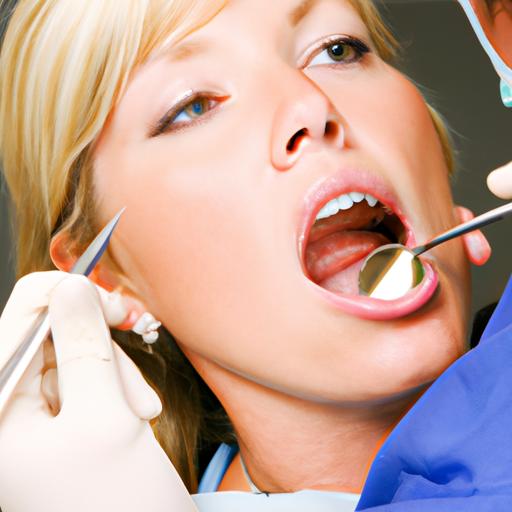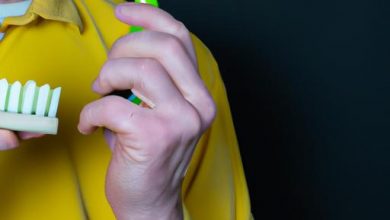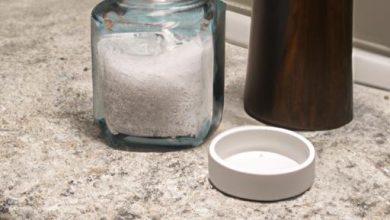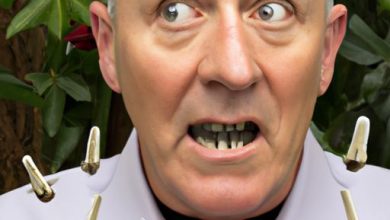Can Dental Problems Cause Headaches?
Are you one of the millions of people who suffer from frequent headaches? You may have tried everything from over-the-counter pain medications to lifestyle changes, but still, the headaches persist. Did you know that dental problems could be the underlying cause of your headaches? Yes, you read that right! Dental problems can cause headaches, and in this article, we will discuss how.
Types of Dental Problems that can Cause Headaches

Dental problems are quite common and can range from minor issues such as tooth sensitivity to severe conditions such as gum disease. Here are some common dental issues that can cause headaches:
Tooth Decay and Cavities
Tooth decay and cavities are caused by the buildup of plaque and bacteria on the teeth. When the decay progresses to the point where it reaches the nerve endings, it can cause severe toothaches and headaches. The pain can be so intense that it can radiate to the entire head, causing debilitating headaches.
Gum Disease
Gum disease, also known as periodontitis, is a bacterial infection that affects the gums and bone supporting the teeth. The inflammation caused by gum disease can trigger headaches. Additionally, the pain caused by gum disease can radiate from the mouth to the head, leading to headaches.
Temporomandibular Joint Disorder
The temporomandibular joint (TMJ) is the joint that connects the jawbone to the skull. TMJ disorder can cause pain in the jaw joint and muscles, leading to headaches. The pain caused by TMJ disorder can be felt in the temples, forehead, and even the neck.
Bruxism (Teeth Grinding)
Bruxism is a condition where a person grinds or clenches their teeth, often while asleep. Bruxism can cause headaches due to the excessive strain it puts on the jaw muscles. The strain can lead to muscle tension and pain, which can radiate to the head, causing headaches.
In conclusion, dental problems such as tooth decay and cavities, gum disease, TMJ disorder, and bruxism can cause headaches. In the next sections, we will discuss how these dental problems trigger headaches and the symptoms to look out for.
Stay tuned to learn more about how dental problems can cause headaches and how to prevent them from happening!
How Dental Problems can Trigger Headaches
Dental problems can trigger headaches through various mechanisms, such as inflammation, nerve irritation, and muscle tension.
Inflammation and Infection
Dental problems such as tooth decay and gum disease can lead to inflammation and infection. The inflammation and infection can spread to the surrounding tissues, including the nerves and muscles, causing pain and discomfort. The inflammation and infection can also trigger headaches, especially if the pain spreads to the head.
Nerve Irritation
Dental problems such as TMJ disorder can irritate the nerves that control the jaw muscles, leading to pain and discomfort. The irritated nerves can radiate pain to the head, leading to headaches. Additionally, nerve irritation can cause muscle tension, which can also lead to headaches.
Muscle Tension
Dental problems such as bruxism can cause excessive strain on the jaw muscles, leading to muscle tension and pain. The muscle tension can radiate to the head, leading to headaches. Additionally, muscle tension in the neck and shoulders can also trigger headaches.
Symptoms of Dental-Related Headaches
Dental-related headaches can present with various symptoms, including pain location and intensity, accompanying symptoms, and triggers and patterns.
Pain Location and Intensity
Dental-related headaches can cause pain in various locations, such as the temples, forehead, and even the neck. The pain can range from mild to severe and can be dull or throbbing.
Accompanying Symptoms
Dental-related headaches can also present with accompanying symptoms such as toothaches, jaw pain, and earaches. Additionally, some people may experience sensitivity to light and sound, nausea, and vomiting.
Triggers and Patterns
Dental-related headaches can have specific triggers and patterns. For example, if you experience headaches after eating sugary or acidic foods, it may be a sign of tooth decay or cavities. If you experience headaches after clenching or grinding your teeth, it may be a sign of bruxism. Identifying the triggers and patterns can help diagnose the underlying dental problem causing the headaches.
In conclusion, dental problems can trigger headaches through inflammation and infection, nerve irritation, and muscle tension. Dental-related headaches can present with various symptoms, including pain location and intensity, accompanying symptoms, and triggers and patterns. In the next sections, we will discuss the diagnosis and treatment options for dental-related headaches and how to prevent them from happening.
Diagnosis and Treatment Options for Dental-Related Headaches
If you suspect that your headaches are caused by dental problems, it’s essential to seek treatment from a dentist. Here are some diagnosis and treatment options for dental-related headaches:
Dental Exam and Imaging
Your dentist will conduct a thorough dental exam to identify the dental problem causing your headaches. They may also use imaging tests such as X-rays, CT scans, or MRI to get a more in-depth look at your teeth, gums, and jaw.
Medications and Pain Management
Your dentist may prescribe pain medications such as ibuprofen or acetaminophen to manage the pain caused by dental problems. They may also recommend muscle relaxants to ease muscle tension and pain.
Dental Procedures and Appliances
Depending on the dental problem causing your headaches, your dentist may recommend dental procedures such as fillings, root canals, or tooth extractions. They may also recommend appliances such as mouthguards or splints to treat bruxism or TMJ disorder.
Prevention and Maintenance of Dental Health to Avoid Headaches
Preventing dental problems is crucial to avoid headaches. Here are some tips to prevent dental problems and maintain good dental health:
Regular Dental Check-Ups and Cleanings
Regular dental check-ups and cleanings can help identify and treat dental problems before they cause headaches. Dentists recommend visiting them at least twice a year to maintain good dental health.
Oral Hygiene Habits
Practicing good oral hygiene habits such as brushing twice a day, flossing daily, and using mouthwash can prevent dental problems that cause headaches. It’s also essential to use the right technique while brushing and flossing to avoid damaging the teeth and gums.
Lifestyle and Diet Modifications
Lifestyle and diet modifications such as quitting smoking, limiting alcohol and sugar intake, and eating a balanced diet can prevent dental problems that cause headaches. Drinking plenty of water and avoiding hard foods can also prevent dental problems.
In conclusion, dental problems can cause headaches, and it’s crucial to seek treatment from a dentist to prevent and treat them. Maintaining good dental health through regular check-ups, oral hygiene habits, and lifestyle modifications can prevent dental problems and avoid headaches altogether.
Zahnweiss Info is committed to providing the latest updates on dental health news, treatments, and therapies. Contact us today for more information on how to prevent dental problems and maintain good dental health!



